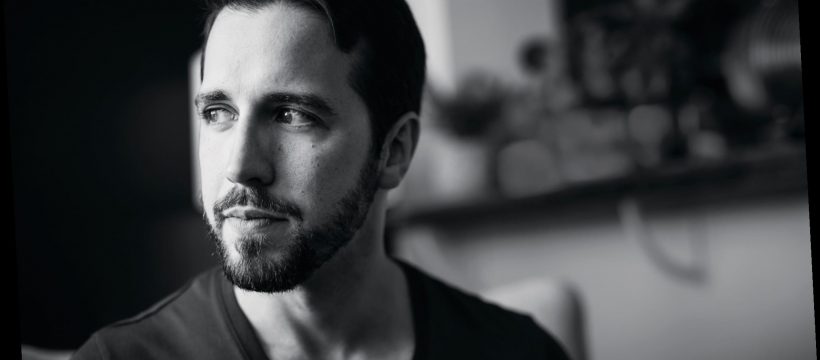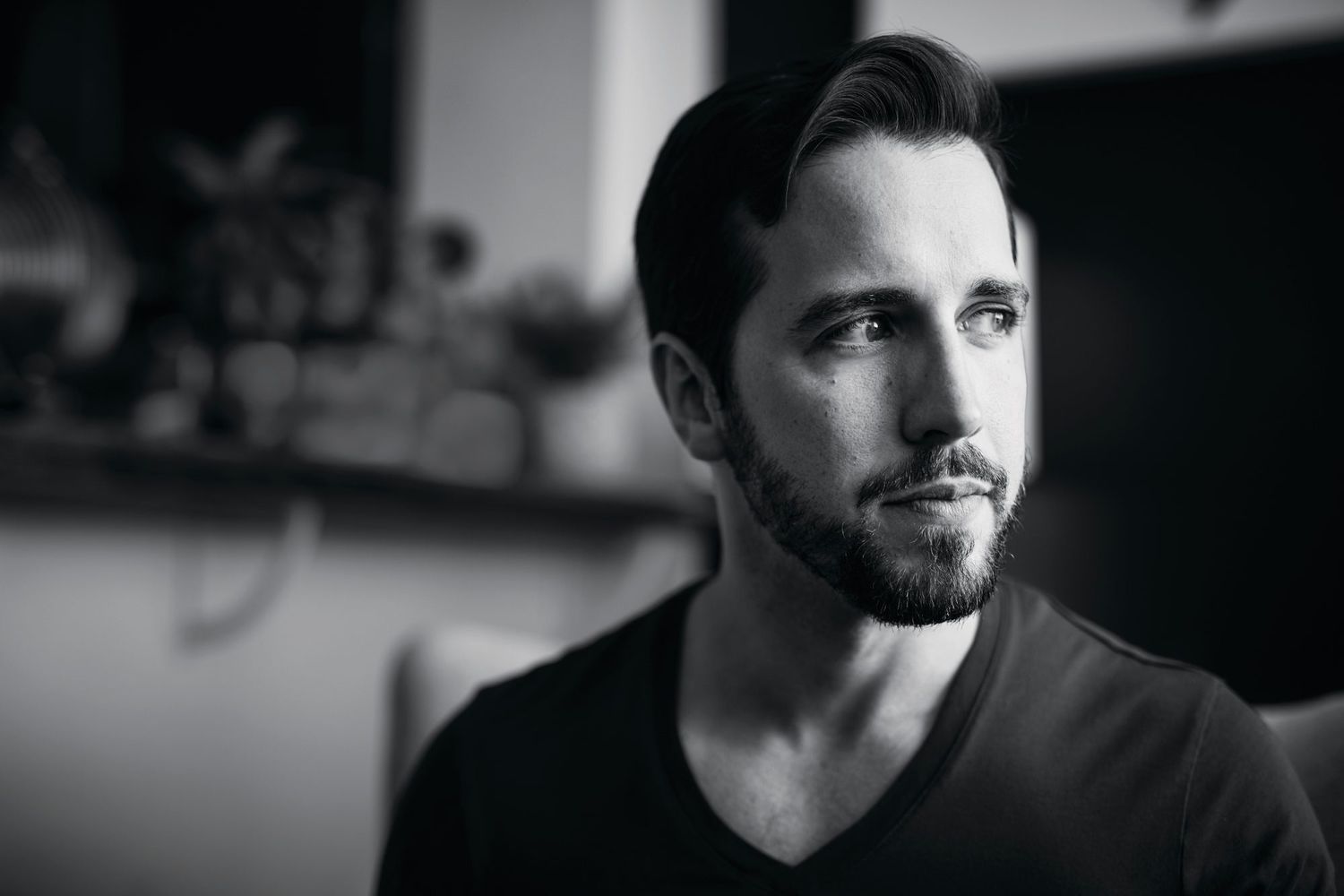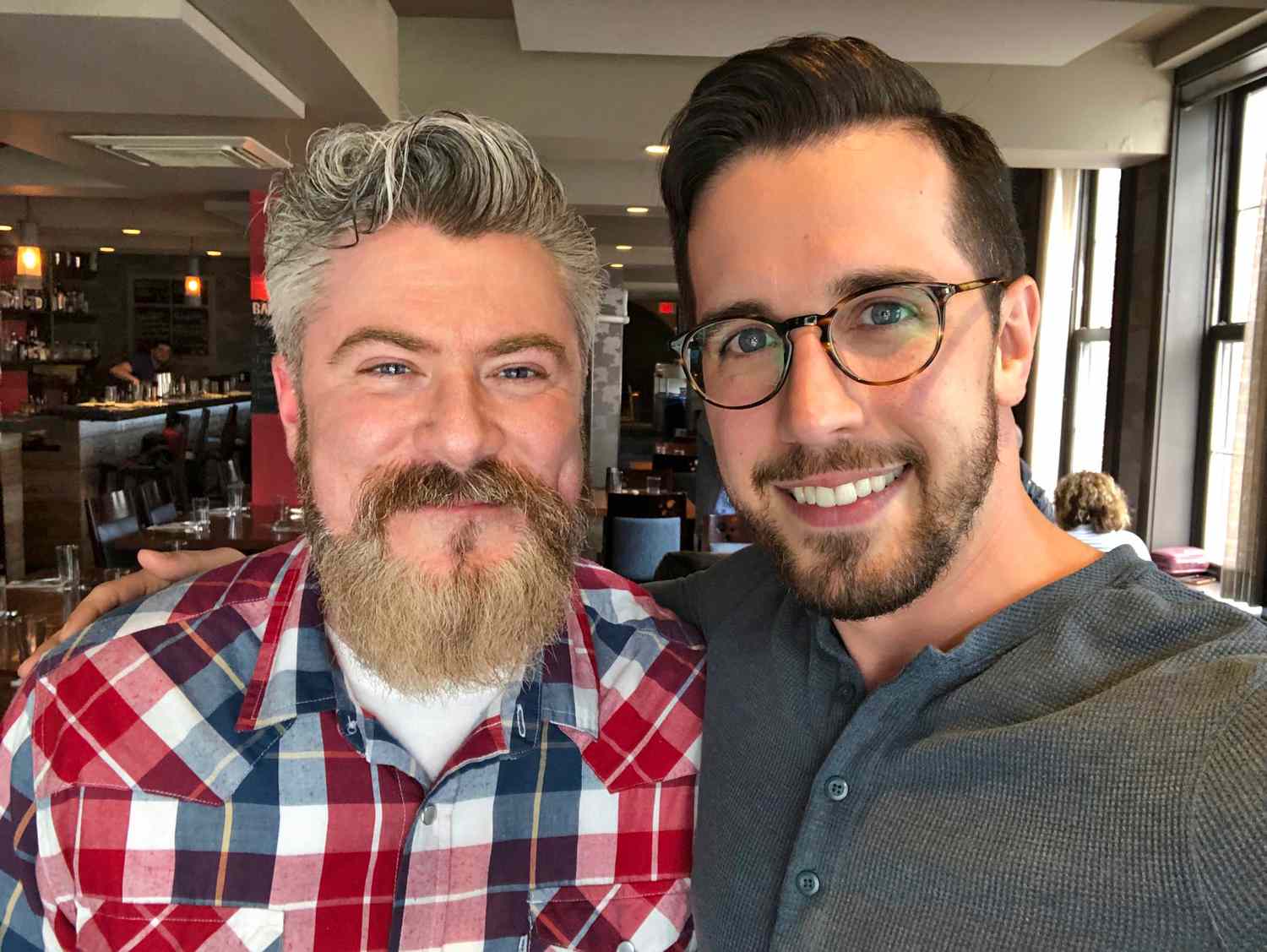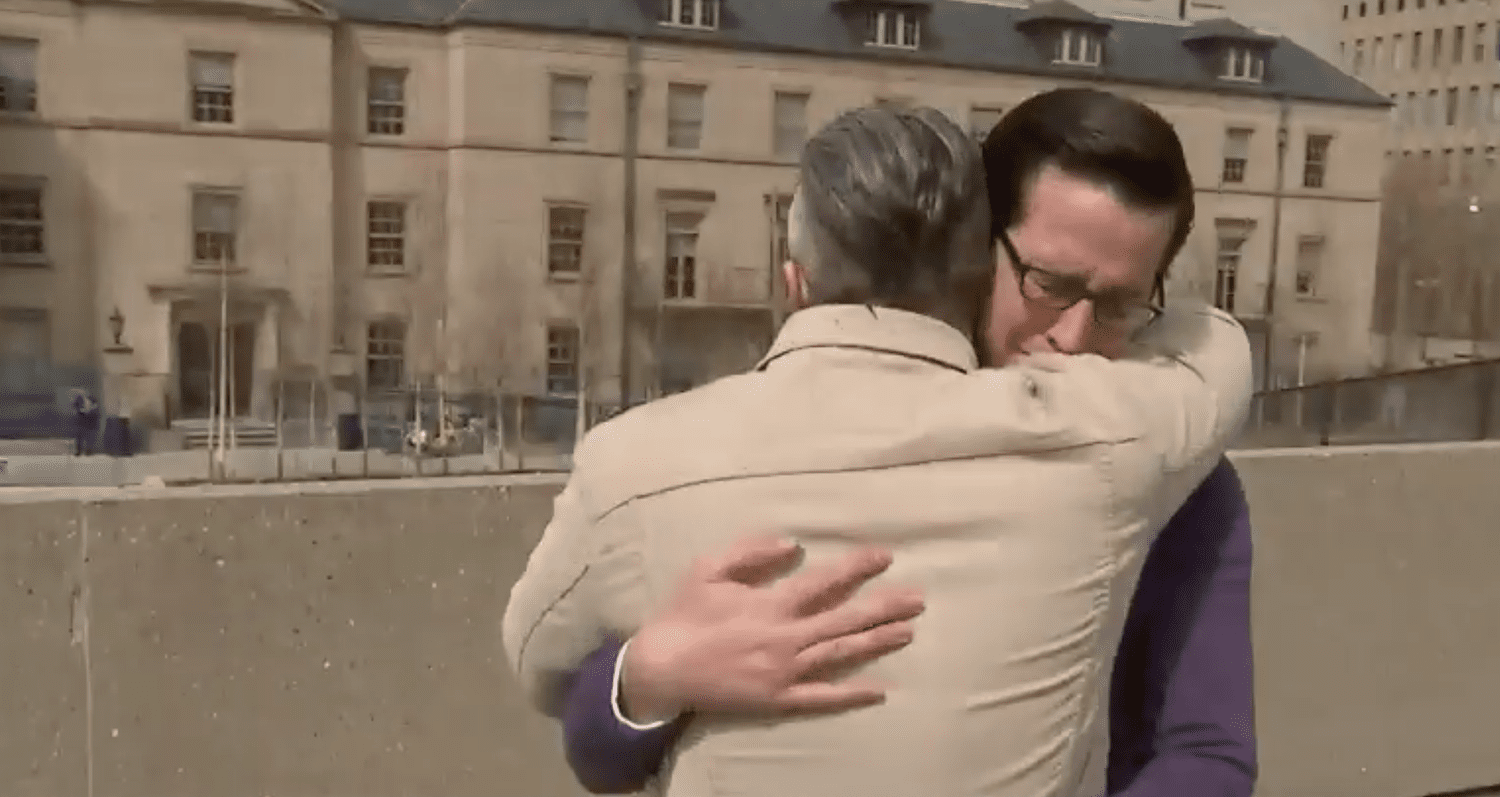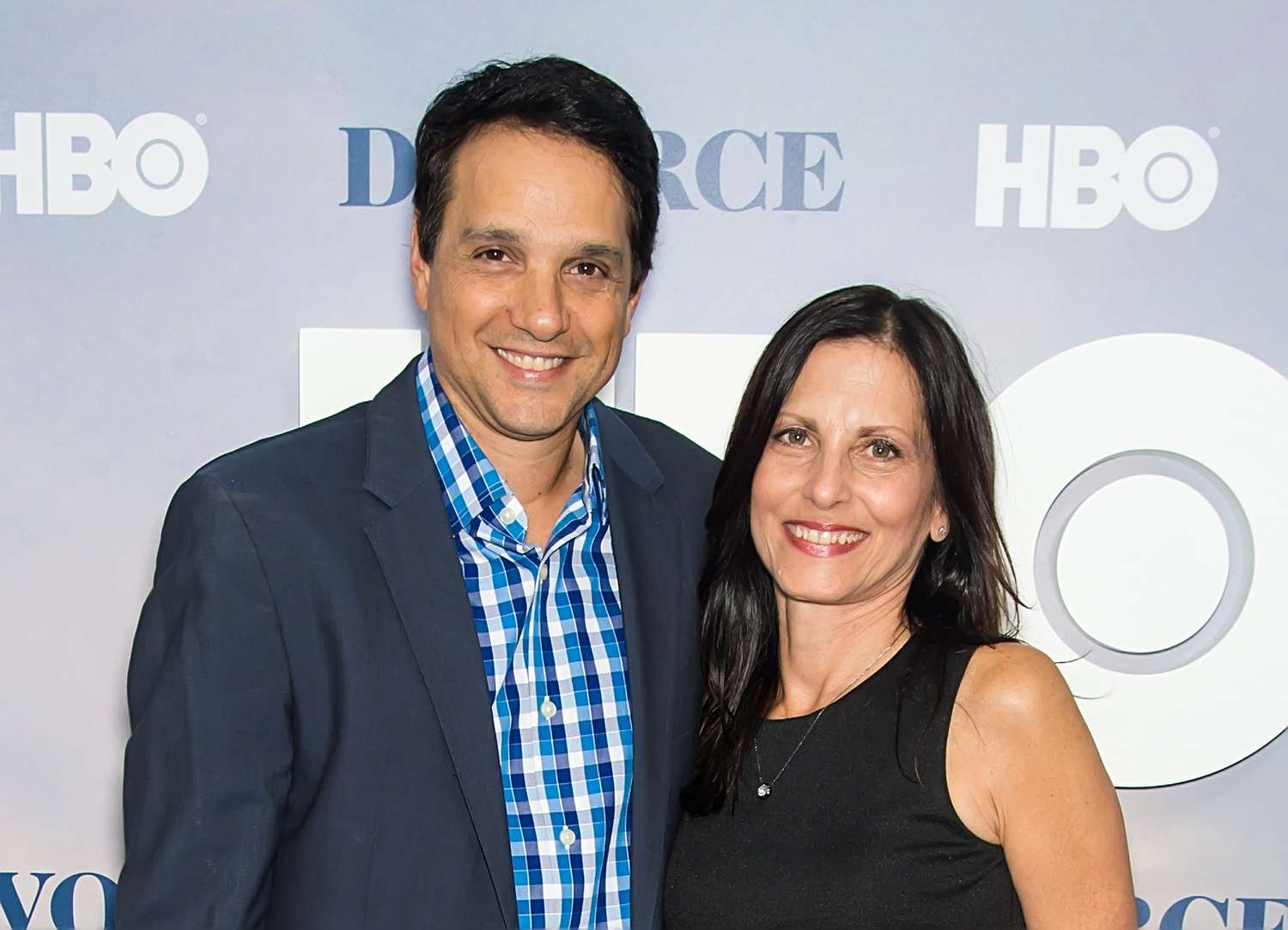One frigid night in 2003, Mike Richey was driving to his midnight shift at a facility for at-risk youth in remote Cape Breton, Canada, when he noticed a lone figure clinging to the outside rail of an overpass.
Richey stopped the car, and soon discovered a teenage boy whose gaze was fixed on the ground 40 feet below. Richey had just begun his career as a youth care worker but had no suicide intervention training.
“I didn't think, ‘I can definitely save this person,’ but I had to at least try,” he tells PEOPLE in this week’s issue.
As the wind whipped and the minutes passed, Richey began to talk to the boy, edging closer as he did.
“I could see his toes hanging off this icy ledge,” he recalls. “The railing he was hanging onto was rounded and slippery. I became fixated on his fingers.”
When the boy suddenly let go, Richey grabbed him, pulling his limp body over the rail. A rush of emergency workers took over, and Richey was left haunted by what had happened.
“I always wondered, ‘Is this kid okay? Did he ever finish what he was trying to do that night?’" Richey says. “I had no way of finding out, so I had to let it go. But it was heavy on me.”
For more on Mark Henick, pick up the latest issue of PEOPLE, on newsstands Friday, or subscribe here.
For years, the boy on the bridge thought about the man who saved him that night, wondering if he may have been just a figment of his tortured mind.
Mark Henick was just 15 when he climbed over the railing on the overpass, but he’d already been suffering from depression for years and had tried ending his life several times before. Real or imagined, the “stranger in the light brown jacket,” as Henick came to think of his savior, became an inspiration.
“It was just such a masterclass in how to help somebody,” Henick, now 33, tells PEOPLE.
So-Called Normal, Henick's memoir about his journey to recovery and the search for the man who saved his life, is out Jan. 12. That night on the bridge became a turning point for Henick, who would go on to earn his master’s in child development and become one of Canada’s most prominent mental health advocates.
“He wasn't a trained professional. He was just a human being," Henick says. "And that's exactly what I needed in that moment, another human being to see me.”
A decade after his life-changing crisis on the bridge, Henick told his story in a TedX talk, which has since had more than 6.5 million views, and he began to wonder if he might be able to find the stranger in the light brown jacket. Meanwhile, a friend of Richey’s had texted him a link to Henick’s talk: "I think this guy's talking about you," he said.
https://www.youtube.com/embed/PLBcApQQepZwBG2P0c-kZAOQmTpCMDZm0C
Richey, 43, who’d continued his career working with at-risk youth in Halifax, Nova Scotia, ducked into a bathroom at work to watch the video.
“I just broke down. I was overwhelmed with happiness that he was alive and doing such great things in his life,” he says. Immediately, he wanted to reach out, “but I didn’t feel it was my place to barge into his life. I didn’t know if it would bring up a lot of trauma.”
Instead, he wrote an email he didn’t know if he’d ever send: “I wanted to tell him how proud I am for what he's done with his life.”
Just weeks after Richey first saw the TedX talk, Henick appeared on a Canadian morning show to ask for help in finding the stranger who had saved his life. Almost immediately, he was flooded with messages on Twitter and Facebook, and stopped on one that claimed he was the stranger's roommate at the time. The two men were quickly put in touch, and Richey sent his letter, which began, “Hi Mark. My name is Mike.”
https://www.youtube.com/embed/FLgdZP4cDYE
“It hit me so hard. If he had a name, it meant he was real, and if he was real, it meant my story was real,” Henick says. “I don't think I believed myself fully until that point. Mike told me about the night on the bridge from his perspective. It was like watching my own story from a different camera angle and it felt so validating to be seen in that way.”
A few months later in 2015, Richey flew to Toronto, where Henick lives, and the two finally met.
“The first thing he did was wrap his arms around me, just like he did the last time we were together,” Henick says. “That was the only way we could reconnect, was to embrace again.”
Henick told Richey he didn’t know how to thank him. “How do you thank somebody for giving you your whole life?” he says. “The best thing I could do was to show him the life that he had given me. I introduced him to my wife and my then 2-year-old little boy.”
Adds Richey: “All I ever wanted throughout those years was to know that he was safe. To find out he's more than okay, that's all I could ask for.”
Since then, their friendship has grown — Richey is even godfather to Henick’s second son.
“It feels like we're old friends. And in some ways we have known each other for a very long time,” Henick says. “I still don't think I've fully repaid my debt to him in the way that he deserves. I hope that living my life as best I can and giving back to others helps to honor his bravery.”
If you or someone you know is considering suicide, please contact the National Suicide Prevention Lifeline at 1-800-273-TALK (8255), text "STRENGTH" to the Crisis Text Line at 741-741 or go to suicidepreventionlifeline.org.
Source: Read Full Article
